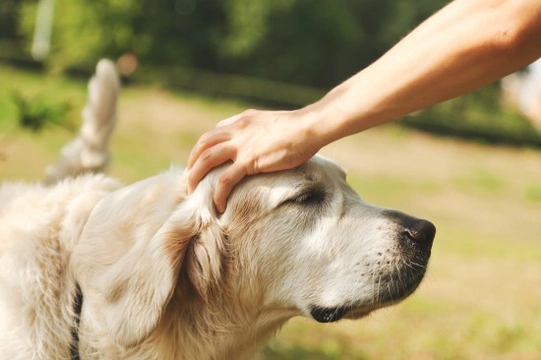
Can you catch an upset stomach from your dog?
The name for a condition that can be passed from people to animals or vice versa, or from one species of animal to another is “zoonotic,” and of course as all mammals have a great more in common than they do differences, some illnesses can cross the species boundary with ease. However, as a general rule, there are relatively few conditions that you can catch or transmit directly to or from your dog, as our bodies, immune systems and propensities to certain infections are rather different to each other.
Observing good hygiene around your dog is vital to reduce the chances of you developing an illness or something nasty from your dog themselves, and this means instigating proper hand washing protocols, and making common-sense rules such as not allowing your dog to lick your face.
Even so, there are a few illnesses and digestive conditions and upsets that you can potentially catch from your dog, whether your dog appears to be ill with something or not, and it is a good idea to make yourself aware of these and learn to recognise the symptoms to look out for.
Read on to learn about the main stomach and intestinal problems that you can potentially catch from your dog.
Intestinal worms
As unpleasant as the idea is, intestinal worms are just about the easiest condition that can be passed from your dog to you, and this alone should be enough to make you sit up and take your hand washing and cleaning procedures seriously!
Some of the most common intestinal worms that people can catch from dogs include roundworms, hookworms and tapeworms. Intestinal worms of this type shed eggs in large quantities through the faeces of the dog, which in turn can go on to infect the soil of your garden and other areas where your do goes to the toilet. This places anyone who uses the same area as your dog at risk of picking up worm eggs, and often, children are the most vulnerable to contracting worms, even if they have not been in direct contact with a dog!
Hookworms are particularly nasty, as simply walking barefoot over affected ground can lead to infection, as hookworms can penetrate the skin and so enter the body through that route.
This is one of the reasons why it is so important to pick up and dispose of your dog’s waste promptly and properly, to prevent it from infecting the soil and posing a health risk to people. Obviously, you should take care not to touch the faeces with your hands, and ensure that you wash your hands thoroughly in hot, soapy water as soon as possible afterwards.
Salmonella
Salmonella is a bacteria that we often associate with food poisoning, caused by either undercooked food or food that has been left out of the fridge before cooking. Salmonella is present naturally in a whole range of things including some food stuffs and the bodies of animals, and usually, the bacteria does not multiply to such an extent that it can affect health.
As salmonella is often carried within the body of the dog, even if it is not making them ill or affecting them at all, you can still pick it up from your dog via a range of methods. Salmonella may be present in saliva, faeces and on bowls and bedding, and if you pick up a salmonella infection, it can cause fever, diarrhoea, cramps and general sickness.
Again, good hygiene protocols and plenty of hand washing can help to prevent the transmission of salmonella.
Cryptosporidiosis
Cryptosporidiosis is a parasitic infection that can be contracted from drinking contaminated water, and as dogs are rarely shy to drink from filthy ponds and pools, many of them carry the parasite within their bodies, whether this causes them to become sick or not. If it does make your dog sick, symptoms can include fever, weakness, vomiting and diarrhoea, and the same is true for humans.
Humans may contract the parasite from contact with contaminated water, canine faeces or contact with food that has been contaminated orally by an infected dog eating from it.
Take care to wash up properly after bagging and disposing of your dog’s waste, and try to prevent your dog from drinking from dirty water sources in the first place.
Campylobacter
Campylobacter coli or Campylobacter jejuni respectively can each cause an intestinal infection called campylobacteriosis, which can be caught directly from eating food that has high counts of the bacteria, or by contaminated canine faeces and poor hand washing protocols.
The condition will often be present in the dog without actually making them sick, and many dogs will shed the bacterial strain through their faeces, which will subsequently stand a chance of infecting their owners. Symptoms include cramps, nausea and vomiting, as well as diarrhoea that may appear bloody. As with most other conditions that can be contracted from dogs and their faeces, simply washing your hands properly and paying a little mind to your hygiene protocols around your dog can help to prevent a potentially nasty bout of sickness!



